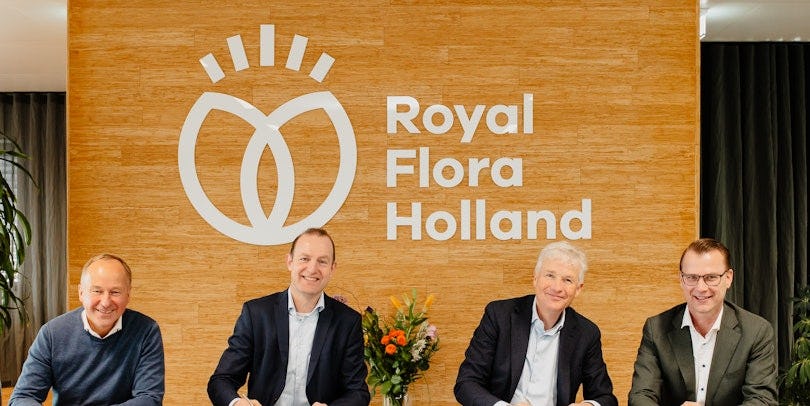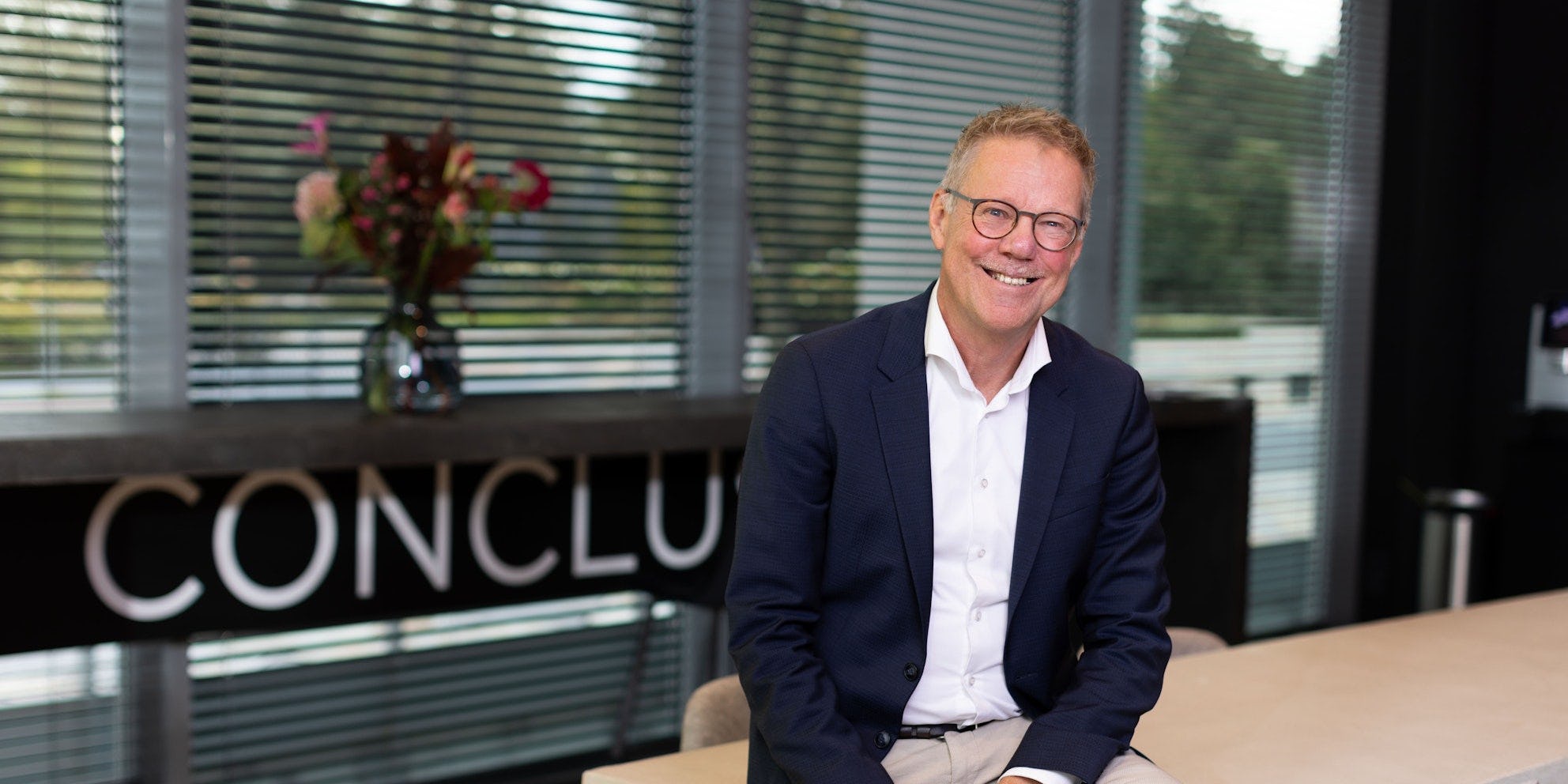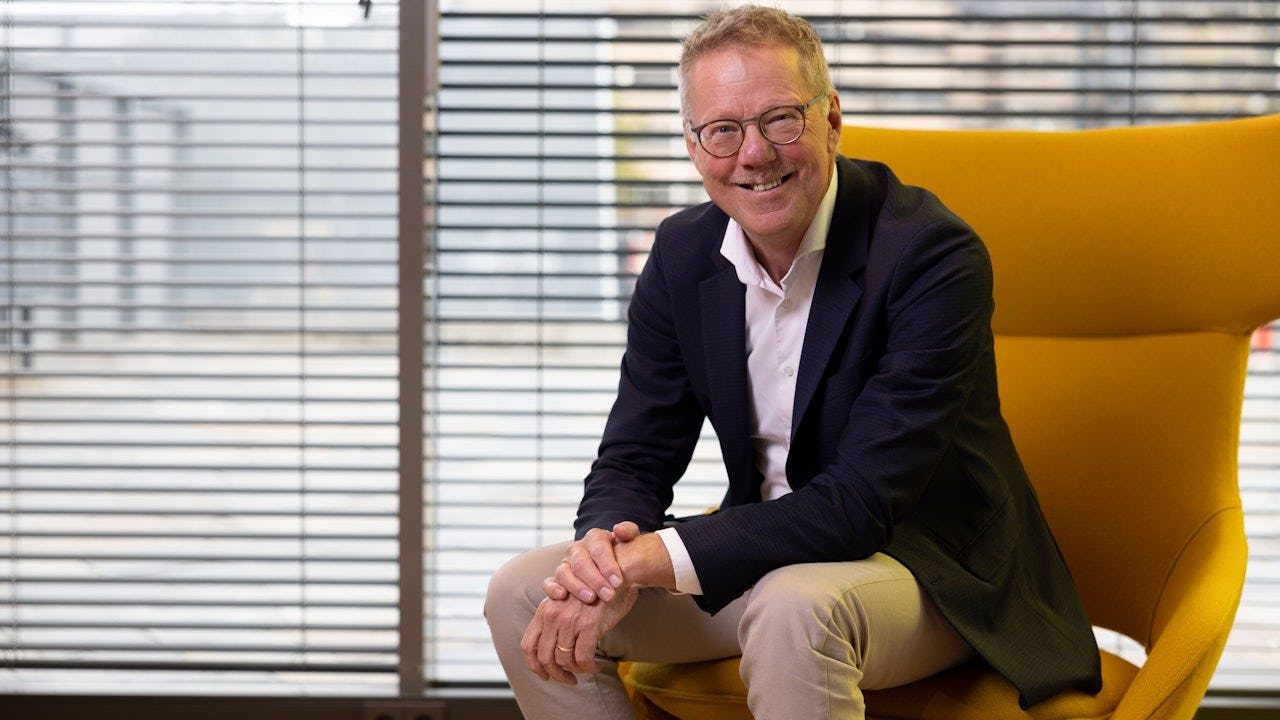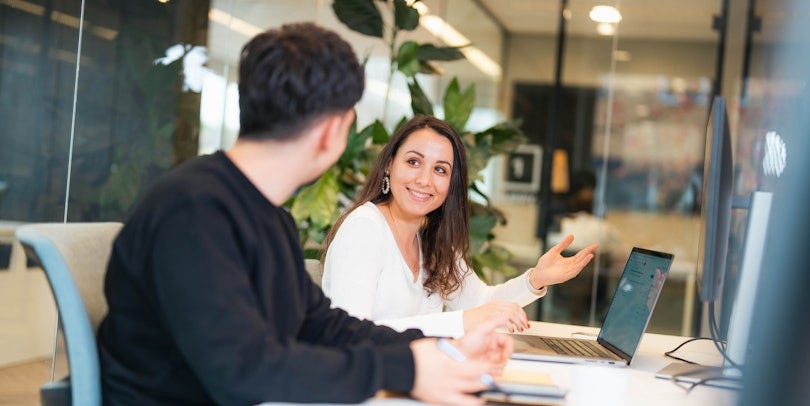
OneShore: capacity abroad
The rebranding of Lalandi Conclusion in South Africa and the acquisition of Neotalent and Score Consulting in Portugal, both in 2023, mark major international strides for Conclusion. Now that the capacity expansion abroad – known as OneShore – is a reality, it’s time to take stock. Management team member Bert Jan de Jongh has been working on internationalization. He sits down to tell us about Conclusion’s ambitions.
April 3rd, 2024 | News | By: Conclusion
Share

Could you tell us a bit more about the reason for expanding capacity abroad?
“We are seeing a shift in client demand. Globalization and technological developments are changing the market. This makes digital transformation all the more critical, and all the more complex. By strengthening our ecosystem and making it scalable with the capacity expansion abroad, we can grow along with our clients’ needs. Scaling up is tough in the Netherlands, due to the tight labor market. Luckily working in international teams is currently quite feasible, as remote work increasingly becomes the norm. Thanks to our capacity abroad, we’ve been able to expand faster, to keep pace with our commitment to our clients.”
What does this step abroad mean for clients?
“Client requests are growing in complexity. Expanding our capacity abroad allows us to keep meeting their needs. For instance, we have more options for deploying employees to different clients. And because we work with mixed client teams, clients enjoy access to a veritable mountain of knowledge. That adds value for them. We can deliver the same quality of service, but more efficiently. The reality is that costs and prices are still among our clients’ key concerns, while at the same time we have to guarantee quality.”
Client requests are growing in complexity. Expanding our capacity abroad allows us to keep meeting their needs.
Where does the name OneShore come from?
“International ambitions are often realized with traditional nearshoring and offshoring. In other words, outsourcing work abroad where you can get it done for lower pay. That isn’t right for us. At Conclusion, we believe in equality: that’s where the name ‘OneShore’ comes from. We continue to act as one team in dealings with clients. It doesn’t matter where you are. In terms of capacity, we are expanding in Portugal, Spain and South Africa. Our commitment to equality shines through in the fact that these companies are joining the Conclusion family.”
Why Portugal, Spain and South Africa?
“These countries check all the boxes. In factors like availability of IT staff, level of education and command of English. We also looked at whether the country is politically and economically stable. On top of that, it was important that they have the same approach to inclusivity and diversity as in the Netherlands. Portugal and the Netherlands are also a match when it comes to culture. The people are accessible and work well together. The same goes for Spain. With South Africa, we have directness in common: just say what you’re thinking. For us, it’s about sharing the same values, so we can be part of one big family together. And of course the beautiful weather and great food and drink don’t hurt.”
What lessons from the Netherlands are you taking to other countries?
“In the Netherlands, we’ve shown that the ecosystem concept works. The formula for success here is the enterprising nature of each company. Creativity and an enterprising spirit are vital in order to spot opportunities on the market and stay relevant. So it’s also a key requirement for foreign companies that want to join our ecosystem. In addition, you also need the will to work together. It’s a matter of give and take. And in order to give, we think companies need to offer quality and be among the top players on their markets. They need to invest in training and in innovative projects. All of these combine to make up the DNA of a typical Conclusion company: a healthy dose of courage, ambition and quality. Going abroad means something in this DNA will change.”
In the Netherlands, we’ve shown that the ecosystem concept works.
In the Netherlands, you mainly serve companies that have an impact on society. How do you ensure that this continues abroad?
“We have an ample set of criteria for whether a company is a good fit for us. Aside from aspects like DNA, we also look at whether have a shared client philosophy. By this I mean we examine whether the client base is a good fit: are their clients ones that we would serve? How does the company talk about its clients? Do they place the same value on them? In practice, this means companies often serve clients active in public transportation, health care, financial services, construction and the energy transition. And we quickly see interconnections here as well. For instance, take myBrand Conclusion, which is active with the Rotterdam Port Authority. Full-service SAP specialist Score Conclusion serves practically every port in Portugal. The two companies can share their skills and knowledge with each other. That only works if you share the same client philosophy.”
Taking the leap abroad without experience is no cake walk. What challenges have you faced?
“For employees in the Netherlands, the English language has actually been the biggest challenge. This is often because people don’t speak English on a daily basis, so they get rusty. In my experience, it’s just a matter of taking the plunge, but that’s a tougher hurdle for some than others. By the way, we offer an English training program to support our colleagues in this. English is also an issue when it comes to documentation. For most of our clients in the Netherlands, everything is set down in Dutch. Plus, of course, it’s also vital for colleagues in different countries to make connections. With remote work, you do get to know each other, but in a sense, you don’t as well. Thankfully we can build on the experience of companies like Conclusion MBS and Yellowtail Conclusion. Not only do they work for international companies, they also have highly diverse teams. So they understand well how to bring different cultures together and create one team out of all our differences.”

The internal connection is of course critical for acting as one team in dealings with clients. How do you create that?
“Connection is one of the basic principles of the Conclusion ecosystem. Looking for connection across borders is more complex than in a small country like the Netherlands. Despite the physical distance, we believe it’s important to meet up every now and again. We want to build international teams. That’s only possible if you get to know each other and forge a connection. That goes better if you also have lunch or do something fun after work together. Ten colleagues from software development specialist Lalandi Conclusion recently came from South Africa to visit myBrand Conclusion in the Netherlands. Everyone got the chance to get to know each other and take in the atmosphere. We saw that employees from both countries really enjoyed meeting up in real life. At the end of the day, what we do is people work, so it’s vital to have fun together.”
Are all clients enthusiastic about your expansion abroad?
“I can imagine clients are afraid things may change for them. When new (international) colleagues come onboard, that does mean a change of course. But what certainly will not change is our focus on the client. For our clients, it’s crucial to work with trusted faces and keep the same point of contact. That’s also important to us, and we want offer our clients’ peace of mind around this. We also want to give them the best of both worlds. That means trusted faces with knowledge of the client, combined with international expertise and capacity. I firmly believe this blended model will work excellently for most clients. Many clients are perfectly happy to work remotely and enjoy the associated cost savings. But most importantly: we can support them even better in all their IT and business transformation challenges.”

